
Event Recap: C@R Hosts 89th Legislative Debrief Summit
On July 10th, CHILDREN AT RISK hosted a 89th Legislative Debrief, which consisted of experts, advocates, and policymakers who were at the forefront of legislative discussions, who analyzed the implications of new laws and identify areas where further action is needed.
This post was written by Rebecca George, C@R Media and Policy Fellow.
With C@R’s Vice President & Chief Government Relations Officer, Mandi Kimball, leading the conversation, this year’s debrief promised engaging conversations and deep-dive insights on the impact that the 89th Legislative Session will have on children and families.
Dr. Bob Sanborn, President and CEO of CHILDREN AT RISK, started off the debrief by giving opening remarks, emphasizing the importance of quality education and how investing in the next generation means placing our legacy into good hands.
“When we talk about early education,” Dr. Bob Sanborn said. “We’re talking about the key development of our future workforce.”
Mandi Kimball then set the stage with a high-level overview of the 89th Legislative Session and key highlights.
“Many people think that advocacy starts in January during the session, and that is not at all the case,” Kimball said. “CHILDREN AT RISK and our partners…we’re working months and months in advance…talking with folks in various communities across the state to identify what those challenges [are], to create policy solutions, and to advocate for legislation and get it across the finish line.”
Jonathan Feinstein, State Director of EdTrust Texas, unpacked key education policies—from investments in teacher pay and college readiness to more punitive discipline measures like HB6, which he warned “moves the state backwards.” He praised community college funding wins in HB8, including free dual credit courses for low-income students, while cautioning that need-based aid isn’t keeping up with demand. Feinstein also flagged real-time fallout from a court agreement invalidating the Texas Dream Act for undocumented students, just as they prepare for the fall semester.
Clayton Travis, Director of Advocacy & Health Policy at the Texas Pediatric Society, then dove into major child health and nutrition issues in Texas, from the state’s highest-in-the-nation child uninsured rate to growing concerns over mental health, nutrition access, and exposure to harmful substances.
“Our goal, of course, is to make sure children are healthy, and they are thriving in whatever community that they come from,” Travis shared.
He highlighted legislation addressing pediatric mental health, protections against youth-targeted marketing of tobacco and THC products, and nutrition programs for pregnant women. Wins included funding for telehealth expansion, tailored meals for Medicaid recipients, and physical activity standards in schools. Still, Travis warned of federal cuts to Medicaid and SNAP that could deeply affect families across Texas.
Courtney Chavez, Director of Advocacy and Government Relations at Lone Star Justice Alliance, urged lawmakers to treat kids like kids. She emphasized the need for healing, not just punishment, but to build safer communities. She spotlighted HB 31’s push to keep nonviolent youth closer to home and reduce harsh practices like pepper spray and solitary confinement, lamenting its stall in session but viewing its groundwork as a step forward. Bills that would’ve deepened punitive measures like SB 1727, which lowered the age for youth transfer to adult prisons, ultimately failed. She championed SB 1278, an affirmative defense for trafficking survivors unjustly criminalized, which passed unanimously but was vetoed. Chavez also supported HB 200’s call to offer second chances to youth sentenced to 40 years for crimes committed as teens.
“What does healing and recovery look like?” Chavez asked. “Because that will lead to stronger people, stronger communities, and honestly, really great public safety.”
Kim Kofron, Senior Director of Education at CHILDREN AT RISK, then dove into policy impacts on Early Childhood Education. She emphasized that focusing solely on infrastructure and staffing in early education overlooks a critical third element – affordability for families.
“If we only focus on those two, will those be affordable then for families?” Kofron asked.
She highlighted the dual challenge of a 95,000-child waitlist and an under-supported workforce, while celebrating a $100 million boost in childcare funding through the Texas Workforce Commission. Legislative wins included HB 2, which eased school–childcare partnerships and expanded pre-K access to teachers’ children. Family childcare received support through SB 599, which cut red tape at the local level, and SB 462, which prioritized childcare workers’ own kids on waitlists to help them stay in classrooms. Employers gained new childcare search tools with SB 1265, while HB 117 launched a task force to unify fragmented governance across agencies. Kofron also praised HB 4903’s effort to streamline regulations and improve quality through an ongoing inter-agency initiative.
Caroline Roberts, General Counsel & Senior Director of Public Policy at CHILDREN AT RISK, then got into Opportunity Youth & Human Trafficking and emphasized the need for early intervention and holistic support for youth involved in systems like foster care and juvenile justice.
“This would actually require that all systems-involved youth be screened for risk of commercial sexual exploitation,” Roberts said, urging preventive action and stronger connections to advocacy teams.
Roberts praised Texas’s progress in anti-human trafficking laws, while calling out gaps in survivor resources. She highlighted legislation expanding protections (like SB 958 and SB 1804) and supported efforts to shut down illicit massage businesses through SB 2167, which targets profiteering and licensing loopholes. She also warned of the rise in AI-generated child sexual abuse material and applauded the legislature’s proactive response to safeguard minors. Turning to workforce development, Roberts spotlighted Opportunity Youth: young people aged 16–24 who are disconnected from education and employment. With nearly half lacking health insurance and education beyond high school, SB 1143 and SB 2448 aim to build career pathways and improve support systems, especially in rural areas. Throughout her remarks, Roberts underscored the need for coordinated governance, survivor-centered policies, and caution against punitive education practices that increase youth disconnection.
The debrief then transitioned to a panel discussion with business leaders and stakeholders on policy outcomes. This panel was moderated by Mandi Kimball, Chief Government Affairs Officer at CHILDREN AT RISK. The panel’s speakers consisted of Stephanie O’Banion, Director of Impact and Engagement at United Ways of Texas, Andrea Coker, Chief Advocacy Officer at North Texas Commission, and Ed Wolff, President at Beth Wolff Relators & C@R Board Member.
In this discussion, they emphasized that childcare isn’t just a social concern but also an economic one, where lack of affordable options keeps parents from taking jobs and stunts business growth. Speakers also pointed out that early childhood education supports both present workforce needs and future readiness, and that nonprofits are a major economic force deserving recognition and strategic collaboration. Effective advocacy, they urged, ties issues to legislators’ priorities and uses local data to show real community impact.
Ultimately, the message was clear: change happens not just during legislative sessions, but in the everyday work of building relationships and keeping the conversation going.
Tying up this event, Jason Sabo, founder of Frontera Strategy, gave powerful closing remarks. He spoke on the “Big Beautiful Bill” and encouraged advocates to continue working for change in the Texas interim, both at the state and federal levels.
“The impact of… I refuse to call it the big beautiful anything. It’s a giant, massive, regressive tax cut. That’s giving a multi-decade-long tax cut to the richest among us and having it being paid for by the least among us. Period. End of story, it’s called math.”
READ MORE FROM C@R
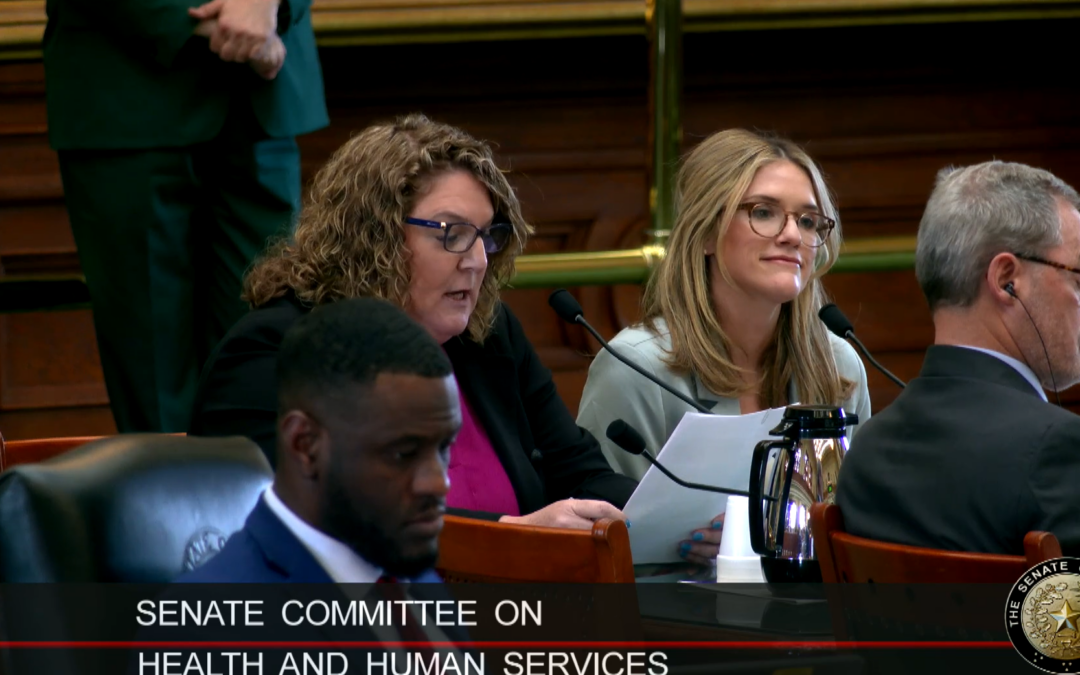
Advocating in Support of SB 599/HB 4127
Kim Kofron, Senior Director of Education with CHILDREN AT RISK, testifies in support of SB 599/ HB 4127 during the March 11, 2025 Texas Senate Health and Human Services Committee Hearing. As the name implies, family home child care is simply an individual Texan...
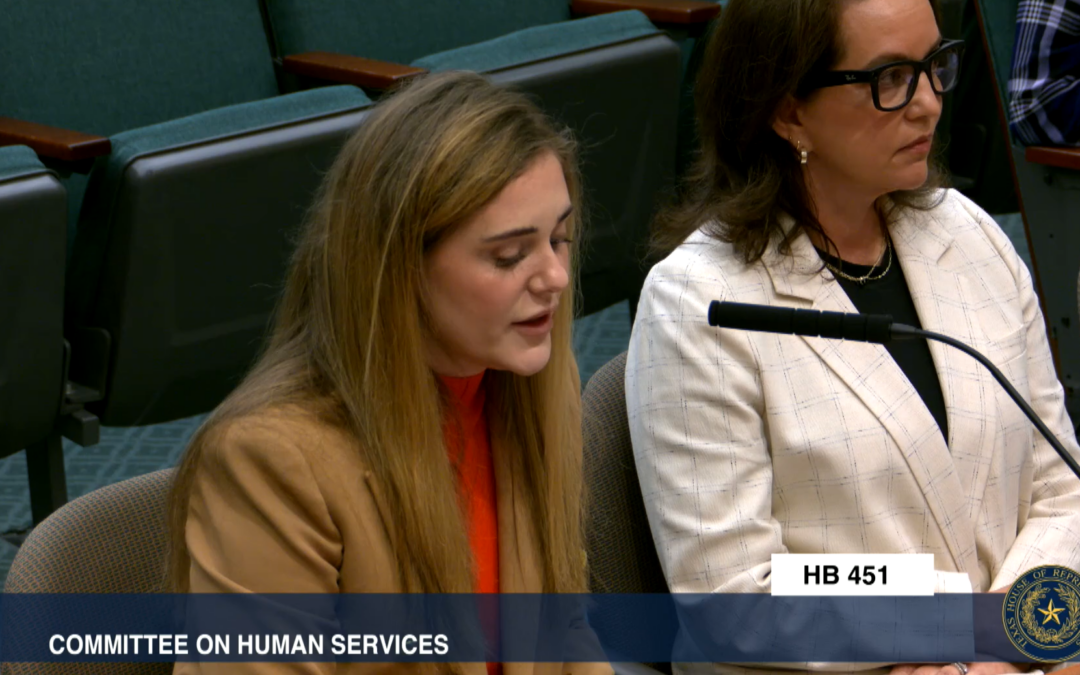
Advocating in Support of SB 941/HB541
Caroline Roberts, JD, General Counsel & Senior Director of Public Policy with CHILDREN AT RISK, testifies in support of SB 941/ HB 451 during the March 25, 2025 Texas House Licensing & Administrative Procedures Committee Hearing. Texas can do more to protect...

Spring 2025 | Early Childhood Education Texas Tour
Each Spring, the CHILDREN AT RISK Early Childhood Education team hosts virtual community roundtables in 12 major cities across Texas. During the roundtables, C@R will share new data and analysis regarding the ECE landscape, including Child Care Deserts, as well as...
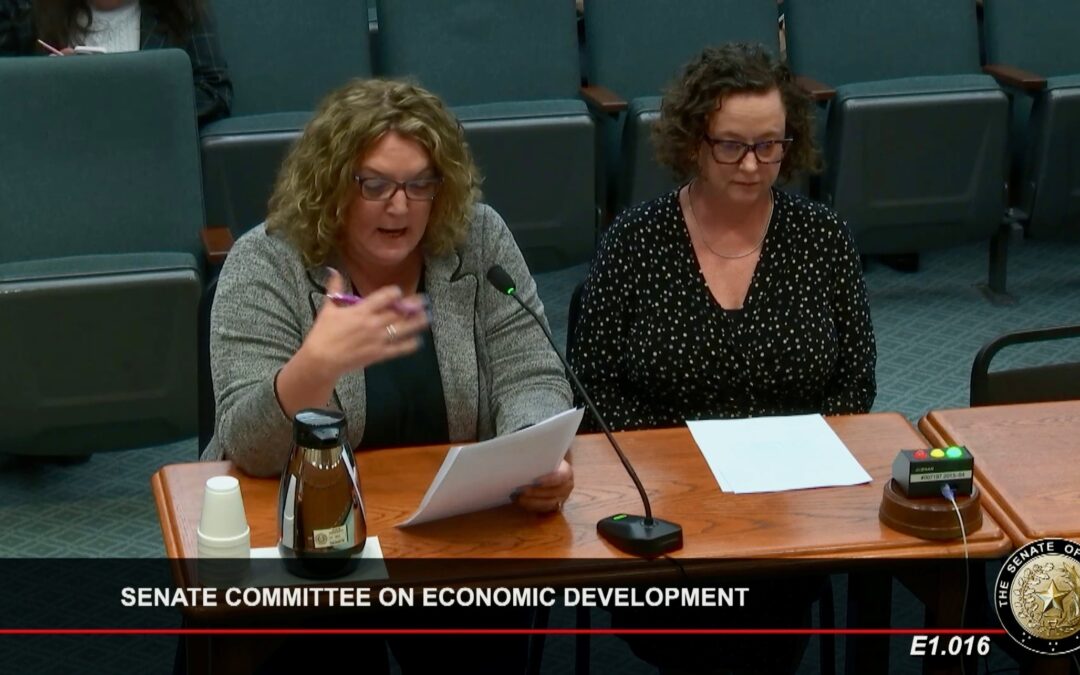
Sign-On Letter in Support of SB 972/HB 2294
Kim Kofron, Senior Director of Education, testifies in support of SB 972/HB 2294 during the March 17, 2025 Senate Economic Development Committee Hearing. We, the undersigned early childhood professionals, educators, employers, parents, and advocates, urge you to...
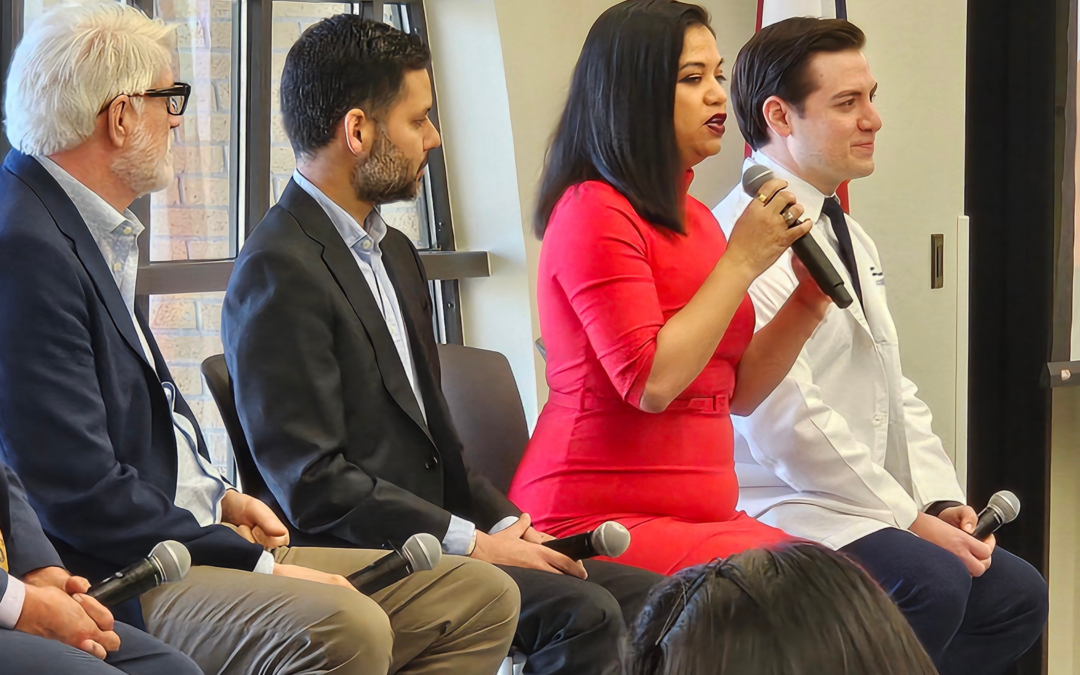
RECAP: The Future of San Antonio 2025
Family Service San Antonio and CHILDREN AT RISK collaborated to present the second annual Future of San Antonio community event on February 28, 2025 On February 28, 2025, CHILDREN AT RISK and Family Service San Antonio co-hosted The Future of San Antonio: Investing in...
2025 Learning Events
2025 Learning Eventsconvening for change CHILDREN AT RISK is committed to hosting free events that engage the public and help them drive change for children. We aim to share research, unpack pressing policy issues, and highlight diverse community perspectives from...
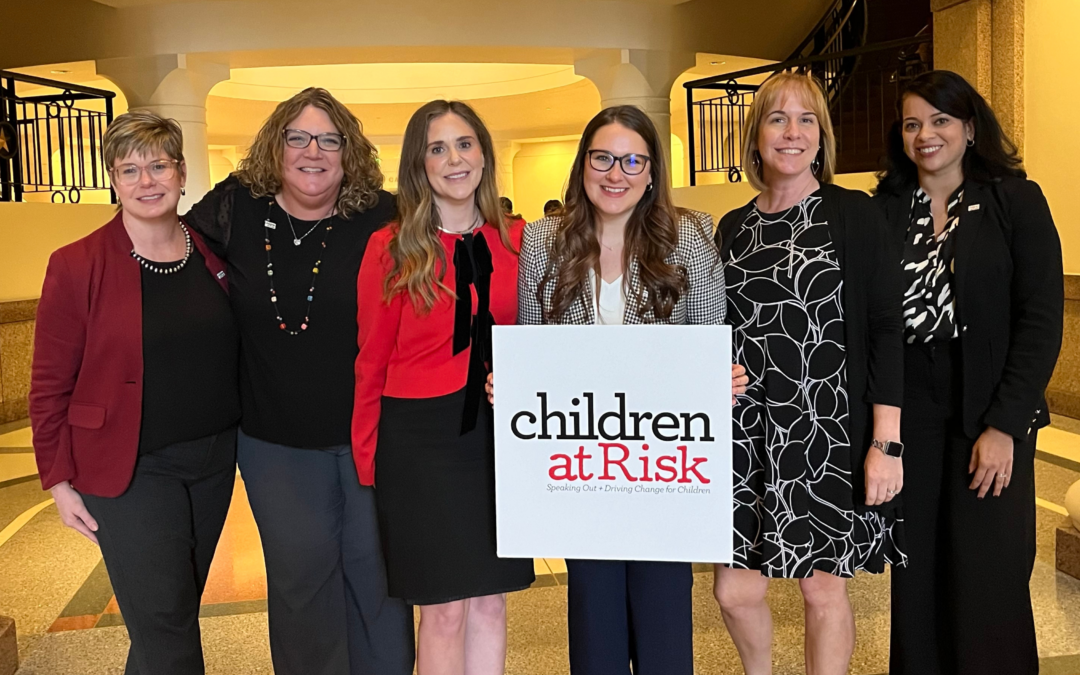
C@R Hosts State of Disconnection Legislative Briefing on Public Education
A State of Disconnection C@R Hosts Legislative Briefing to address challenges in public education and youth disconnectionOn Friday, November 15th, CHILDREN AT RISK hosted a Legislative Briefing at the Texas Capitol to address two critical challenges facing Texas...
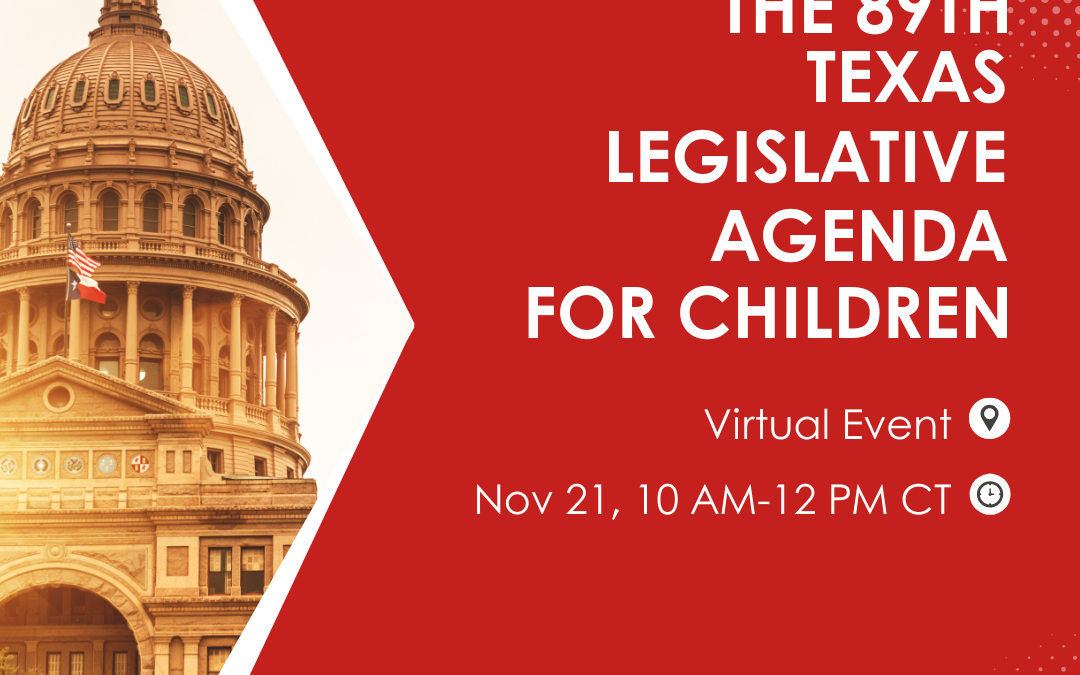
C@R Hosts 89th Texas Legislative Agenda for Children
This post was written by Briauna Derry, Director of Media Activism, CHILDREN AT RISK.On November 21, CHILDREN AT RISK, in partnership with the Texas Family Leadership Council, hosted the 89th Texas Legislative Agenda for Children Summit, bringing together experts,...